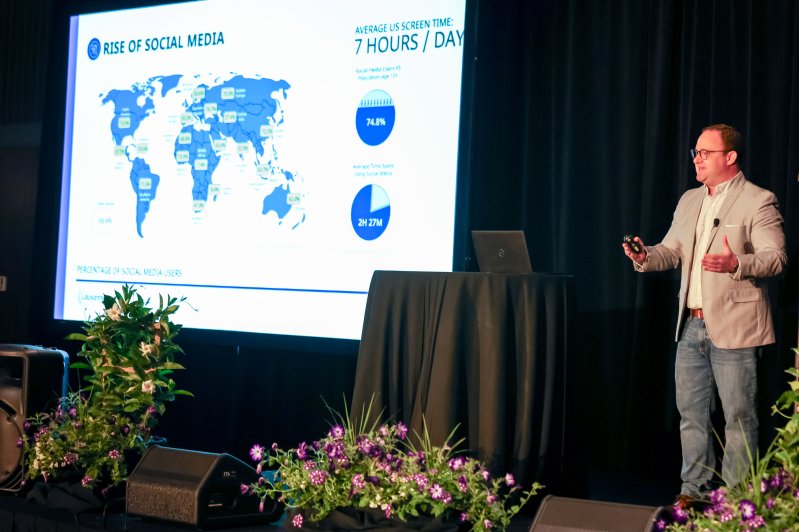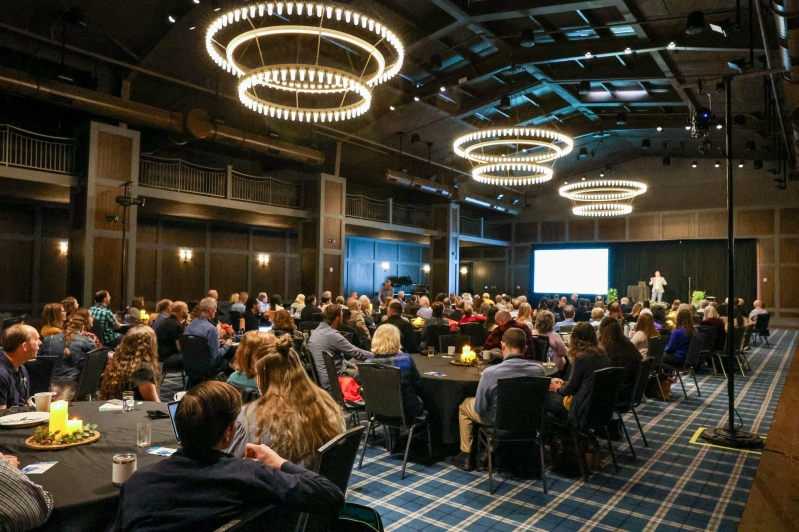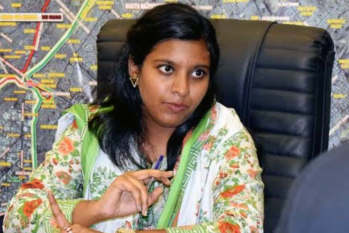
On the morning of Monday, April 22, Matthew Niermann, Lausanne Movement’s Director of the State of the Great Commission Report, provided a glimpse of the findings of the years-long research at the annual gathering of the Evangelical Press Association in Lexington, KY.
The report that will be officially launched at an online event tomorrow and will feed into the upcoming fourth Lausanne Global Congress in Seoul, Korea this September presents the “best global data and key strategic thinkers to understand where the greatest gaps and opportunities are for the Great Commission’s fulfillment,” according to Lausanne.
“After multiple years of preparation, the state of the Great Commission report will be available [tomorrow]. This report is a product of a multi-year process starting in 2021 with global listening calls all around the world from every region to every topic, pulling together strategic leaders, listening to what they understood to be the greatest challenges and opportunities for the Great Commission,” Niermann said.
The report boasts over 500 pages including findings and analyses by more than 150 global authors, of which 35% are from the global west, 40% from the global south, and 25% from the global east, with a ratio of 40% women and 60% men. And to make it accessible to audiences globally, it will be translated into six other languages: French, Portuguese, Spanish, Russian, Mandarin, and Korean.
Introducing the different sections of the report, Niermann said: “The first part begins to look at the current state of the Great Commission, looks at a variety of indicators, knowing that there's not one number that indicates the Great Commission, but a variety of activities indicators to get a sense of where we're at in the Great Commission.”
“Part two turns our eyes [to the future]. We begin to ask how is the world changing between now and 2050 and how will that affect the Great Commission?” he continued.
Ten questions are key to the analysis of the second section: What is polycentric Christianity? Where does hope lie? What is the foundation of trust? What are emerging demographics? What is community? What is fair and just? What is sustainable? What does it mean to be human? What is a digital life? And what is ministry in a digital age?
“Part three of this report begins to take these global trends, the 10 questions with 40 trends underneath those 10 questions and begins to ask, how is this playing out on each region of the world and what are some key regional observations that are there?” Niermann said.

With the full report launching on Tuesday, Niermann focused on presenting some teasers that illustrate changes and related challenges that the global Church has to grapple with as it looks into the future and striving to fulfil the Great Commission that Jesus entrusted to his disciples as recorded in Matthew 28,18-20.
Significant changes are the various shifts in demographics both in the general population and the global Church, with statistics revealing a picture of continuing trends that give greater emphasis to Africa and Asia.
“If we look at Christianity from 1900 to 2050 projected, we can begin to see there's a massive change that's happened across the global Christianity in 1900. The majority of Christians existed in Europe and North America. If we fast forward all the way to 1950, we can begin to see there's an inverse. The majority of Christians exist in Africa and Asia and Latin America and the minority in Europe and North America,” he said, echoing similar findings presented last week at the Global Christian Forum.
“We'll see much of the world will be shaped in the next 20 to 30 years, and much of global Christianity will be shaped by the rise of Africa and the rise of Asia,” he added.
Looking at trends within the Church, Niermann highlighted the first and greatest challenge being a need for discipleship. Pointing to a marker that showed a single dot far ahead of all others, he said, “This is the product of all of our listening calls we did around the globe. We asked every major evangelical leader around the world, what are our opportunities and challenges for the great commission in your region? We put all those together and the result came out by far the number one thing is the need for discipleship.”
“This is an internal reflection from all of our global leaders saying, we must disciple things are not going well,” he said.
He then went on to share findings that revealed that a high percentage of leaders felt there is either no or only limited discipling for those who come to faith.
Digging deeper into the issue specifically on sharing the gospel, they also found that a good number of Christians actually do not know what the Great Commission is, and if they do know, then almost half of them consider it to be optional rather than a mandatory task for the Church.
“So, we begin to wonder how is it that the Great Commission is not progressing? These are some indicators,” Niermann commented, highlighting that one of the most shocking graphs of the report is the one that looks like a straight horizontal line. It shows that global Christianity’s percentage of the world population has not changed in more than a hundred years, remaining steady at 33 to 34 percent.
Highlighting various other statistics and trends, Niermann outlined the issues that will be relevant for the thousands of participants that are expected to come together in Seoul, Korea from September 22-28, for the global congress.
In order for people today to effectively be reached with the gospel, Christian leaders in churches, ministries and all sectors of society need to be well informed about challenges and opportunities related to the Great Commission, and they need to be willing to collaborate, according to Niermann.
“A key aspect of catalyzing collaboration for this intentional, strategic Great Commission endeavor lies in truly understanding its current status within our ever-changing world.”
To join the launch event on Tuesday, April 23 at 9am Eastern time, visit Lausanne.org/report.





